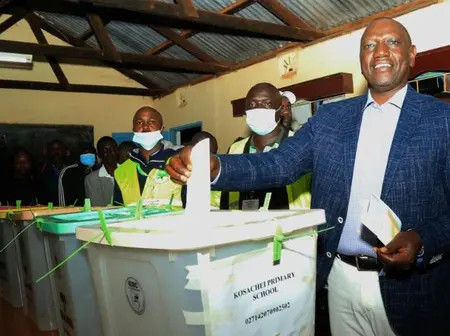A new survey by TIFA Research shows that while most Kenyans intend to participate in the 2027 general elections, nearly half remain doubtful that the Independent Electoral and Boundaries Commission (IEBC) can deliver a free and fair poll.
The findings reveal that 94 per cent of respondents who trust the IEBC plan to vote. Even among those with little confidence in the agency, 84 per cent still intend to cast their ballots. Remarkably, 70 per cent of Kenyans who say they do not trust the IEBC and another 70 per cent who have no confidence at all, also expressed plans to vote.
“There is a striking difference in the expressed intention to vote in the next general elections between those who are ‘very confident’ that they will be ‘free and fair’ as opposed to those who are either ‘not confident at all’ about this or are ‘not sure’ about it (94% vs. 70% for both of the latter groups),” TIFA stated.
Despite this strong willingness to vote, skepticism about the IEBC’s credibility remains widespread.
Nearly half of Kenyans surveyed said they doubt the agency will hold credible elections in 2027. Of these, 48 per cent cited political interference, state manipulation, and corruption (45 per cent) as their biggest worry, while 34 per cent cited a lack of confidence in the IEBC itself, including its newly appointed commissioners and chairperson.
The report notes that these two issues – political interference and mistrust in the electoral body – account for the vast majority of concerns, representing nearly four out of every five Kenyans who question the integrity of the 2027 elections.
Other issues raised included fears of violence and insecurity (13%), potential technology breakdowns such as results transmission failures (3%), while 5% of respondents did not specify their reasons.
“Among the nearly half of all Kenyans who expressed a total lack of confidence in the integrity of the 2027 elections, most cited either political interference resulting in corruption of the electoral process, or a lack of trust in the IEBC,” TIFA noted.
The survey was conducted between August 23 and September 3, 2025, through telephone interviews held mainly in Kiswahili and some in English. TIFA interviewed 2,024 respondents whose contacts were collected earlier through household-based interviews. It carries a margin of error of +/-2.17% and covered nine regions: Central Rift, Coast, Lower Eastern, Mt Kenya, Nairobi, Northern, Nyanza, South Rift, and Western.

Leave a Reply